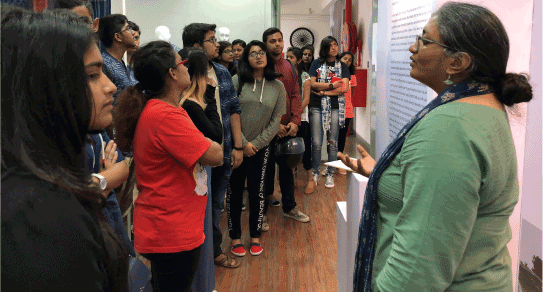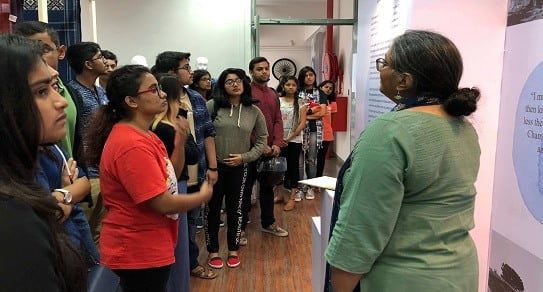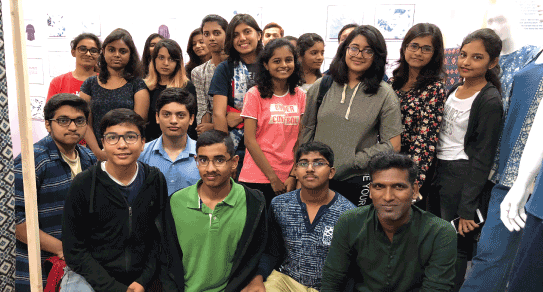
NIFT Coaching in Bangalore: A Complete Roadmap from Beginner to Admit
Preparing for the NIFT entrance exam can be both exciting and challenging. With the right direction, structured learning, and consistent practice, success becomes achievable. This

In the annals of Indian history, few figures stand as tall and revered as Dr. APJ Abdul Kalam. A scientist, visionary, and statesman, Dr. Kalam’s life journey is a testament to the power of perseverance, intellect, and humanity. As we commemorate his legacy, let’s delve into the inspiring biography of this remarkable individual.Remembering APJ Abdul Kalam, a beacon of inspiration and leadership.
Early Life and Education:
Born on October 15, 1931, in Rameswaram, Tamil Nadu, Avul Pakir Jainulabdeen Abdul Kalam hailed from a modest background. Despite facing financial challenges, young Abdul Kalam exhibited a voracious appetite for knowledge and a deep curiosity about the world around him. His early education at the Schwartz Higher Secondary School laid the foundation for his academic pursuits.
Driven by a passion for aerospace engineering, Abdul Kalam pursued his undergraduate studies at the Madras Institute of Technology (MIT), where he honed his technical skills and nurtured his dreams of contributing to India’s scientific advancement.
Pioneering Contributions to Science and Technology:
After graduating from MIT in 1958, Abdul Kalam embarked on an illustrious career in science and technology, marked by pioneering contributions to India’s defense and space programs. His tenure at the Defense Research and Development Organization (DRDO) and the Indian Space Research Organisation (ISRO) saw the fruition of indigenous missile systems and space technologies that bolstered India’s defense capabilities and space exploration endeavors.
Abdul Kalam’s leadership in the development of India’s missile program earned him the moniker “Missile Man of India,” a testament to his technical acumen, strategic vision, and unwavering commitment to national security.
Presidency and People’s President:
In 2002, Abdul Kalam assumed the role of the 11th President of India, a position he embraced with humility, grace, and a deep sense of duty. His presidency, characterized by a focus on youth empowerment, education, and societal development, endeared him to millions of Indians who affectionately referred to him as the “People’s President.”
Abdul Kalam’s tenure in Rashtrapati Bhavan was marked by his accessibility, compassion, and dedication to serving the people of India, particularly the marginalized and underprivileged sections of society.
Legacy and Enduring Influence:
Beyond his illustrious career in science and politics, Abdul Kalam’s legacy endures as a beacon of inspiration and hope for millions around the world. His indomitable spirit, visionary leadership, and humanitarian ethos continue to resonate across generations, transcending geographical boundaries and cultural divides.
As an author, educator, and motivational speaker, Abdul Kalam touched countless lives with his timeless wisdom, encouraging individuals to dream big, work hard, and strive for excellence in all endeavors. His autobiography, “Wings of Fire,” remains a literary masterpiece that chronicles his extraordinary journey from humble beginnings to the pinnacle of success. Remembering APJ Abdul Kalam, his legacy inspires countless to dream big and strive for excellence.
Conclusion:
In commemorating the life and legacy of APJ Abdul Kalam, we celebrate not just a remarkable individual, but a symbol of resilience, integrity, and service to humanity. Remembering APJ Abdul Kalam as a guiding light for future generations, inspiring us to embrace the values of knowledge, compassion, and unity in our pursuit of a brighter tomorrow.
As we reflect on Abdul Kalam’s extraordinary life, let us rekindle the flame of his vision and carry forward his legacy of excellence, innovation, and compassion for the betterment of society and the world at large.
Also explore : NIFT Admit card | uceed sample question paper | Nift vision |


Preparing for the NIFT entrance exam can be both exciting and challenging. With the right direction, structured learning, and consistent practice, success becomes achievable. This

Preparing for the architecture entrance exam requires the right strategy, structured learning, and expert mentoring. With increasing competition, NATA coaching has become essential for students

If you’re an aspiring designer or architect, you’ve likely come across NIFT NID NATA comparison discussions. These three exams — NIFT, NID, and NATA —

Preparing for the NATA exam requires a blend of skill, strategy, and consistent practice. If you’re aiming for a top score in NATA 2026 preparation,

Getting into NIFT is a big achievement for any fashion and design aspirant. Once the results are out, the biggest question students face is how

Preparing for the NIFT entrance exam is a big step for any student who wants to enter the world of design and fashion. Many students



By signing up for IgniteIndia. You agree to the Terms of Services and PrivacyPolicy of the platform.

Preparing for the NIFT entrance exam can be both exciting and challenging. With the right direction, structured learning, and consistent practice, success becomes achievable. This

Preparing for the architecture entrance exam requires the right strategy, structured learning, and expert mentoring. With increasing competition, NATA coaching has become essential for students

If you’re an aspiring designer or architect, you’ve likely come across NIFT NID NATA comparison discussions. These three exams — NIFT, NID, and NATA —

The NID entrance exam preparation journey is one of creativity, strategy, and dedication. Whether you’re dreaming of joining the prestigious National Institute of Design (NID)

Preparing for the NATA exam requires a blend of skill, strategy, and consistent practice. If you’re aiming for a top score in NATA 2026 preparation,

When students look for a place that understands their creative dreams and helps them build a strong future, Pearl Academy Jaipur often becomes one of
Fashion & Textile Designer, Educational and Career Counselor. He is an alumnus of NIFT and won the Best Graduation Project Award. He is guiding students from the past 10 years.
Ignite India Education is inspired by the former President of India Bharat Ratna Dr. APJ Abdul Kalam’s vision of “India Beyond 2020”. Our aim is to fulfil his vision by empowering society and transforming India into a developed nation through education.
Fashion & Textile Designer, Educational and Career Counselor. He is an alumnus of NIFT and won the Best Graduation Project Award. He is guiding students from the past 10 years.
Ignite India Education is inspired by the former President of India Bharat Ratna Dr. APJ Abdul Kalam’s vision of “India Beyond 2020”. Our aim is to fulfil his vision by empowering society and transforming India into a developed nation through education.
Fashion & Textile Designer, Educational and Career Counselor. He is an alumnus of NIFT and won the Best Graduation Project Award. He is guiding students from the past 10 years.
Ignite India Education is inspired by the former President of India Bharat Ratna Dr. APJ Abdul Kalam’s vision of “India Beyond 2020”. Our aim is to fulfil his vision by empowering society and transforming India into a developed nation through education.
Fashion & Textile Designer, Educational and Career Counselor. He is an alumnus of NIFT and won the Best Graduation Project Award. He is guiding students from the past 10 years.
12 Years of Experience








Ignite India Alumni networks provide the long-term value to an educational institution by giving alumni the chance to stay in contact and continue to learn from each other long after they have left Institute. Ignite India is a Well Known Design Institute that equips students for success in career.
